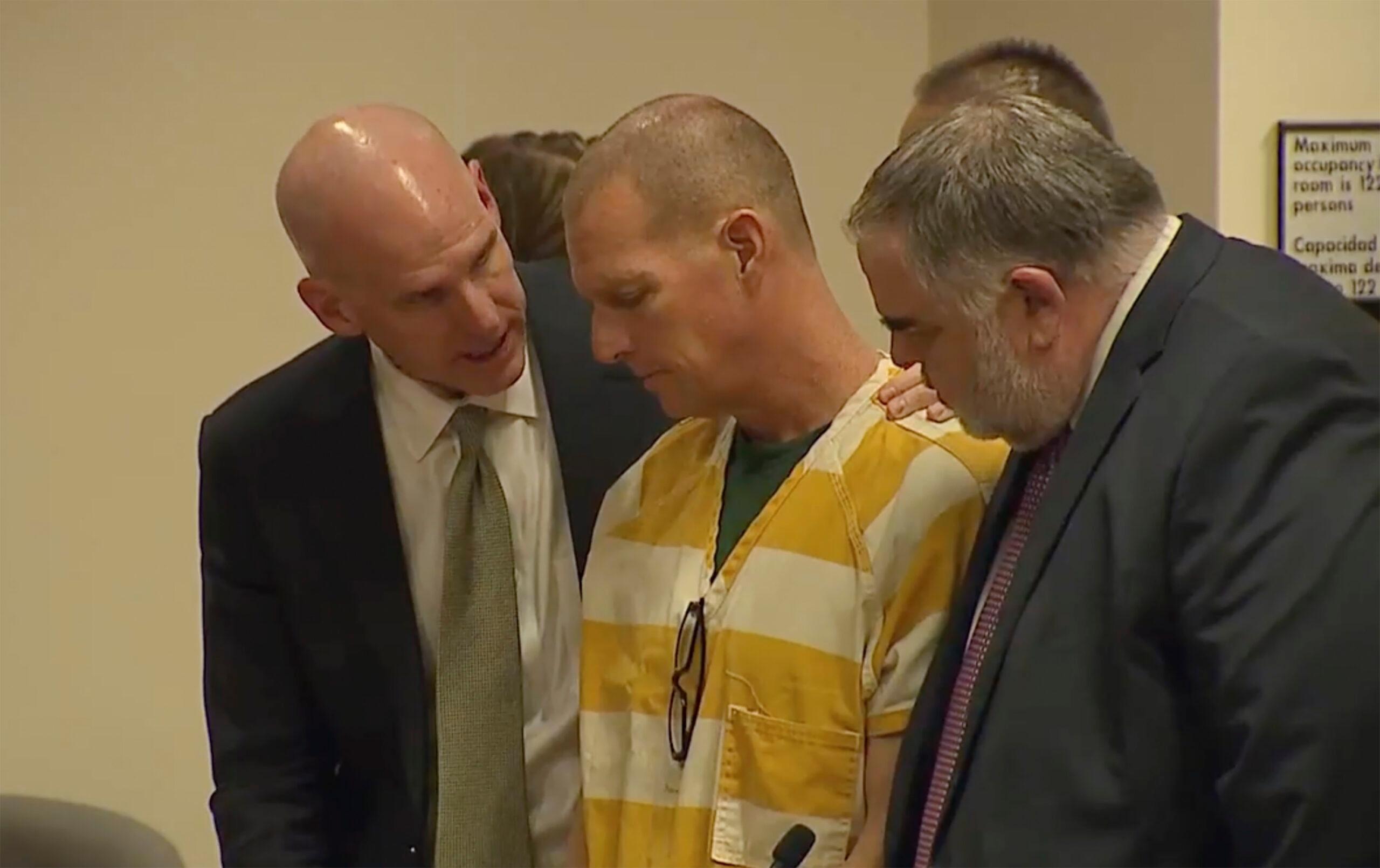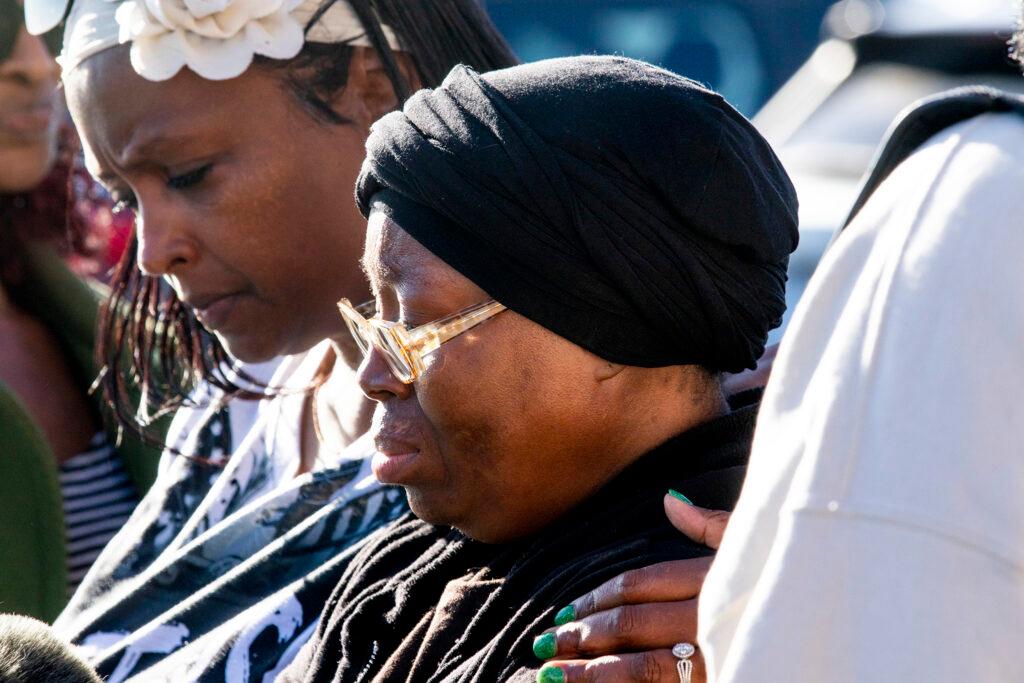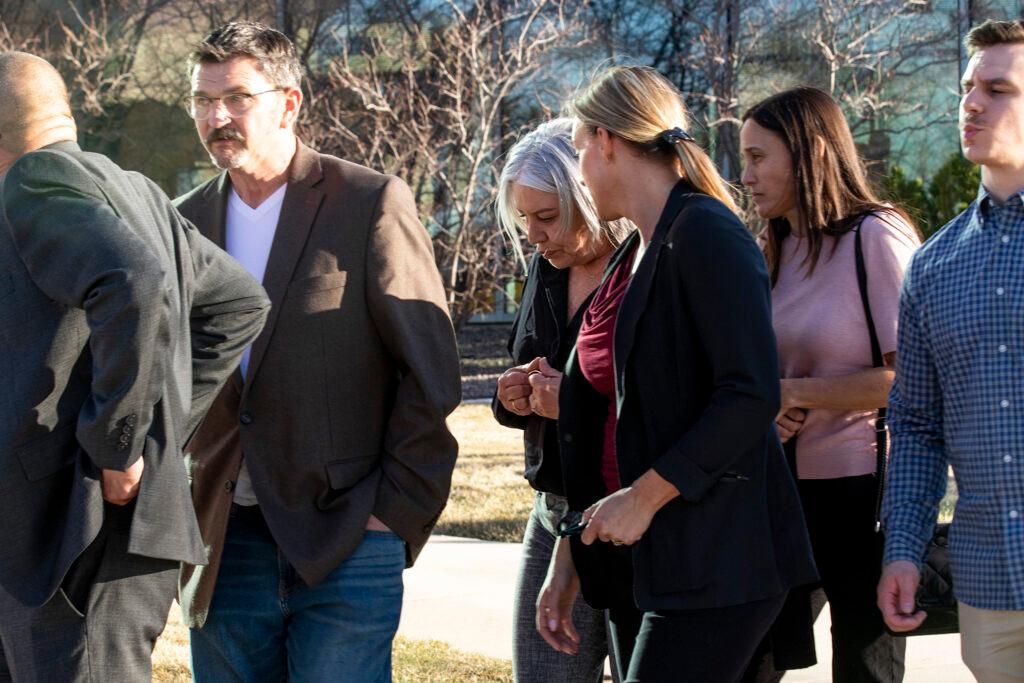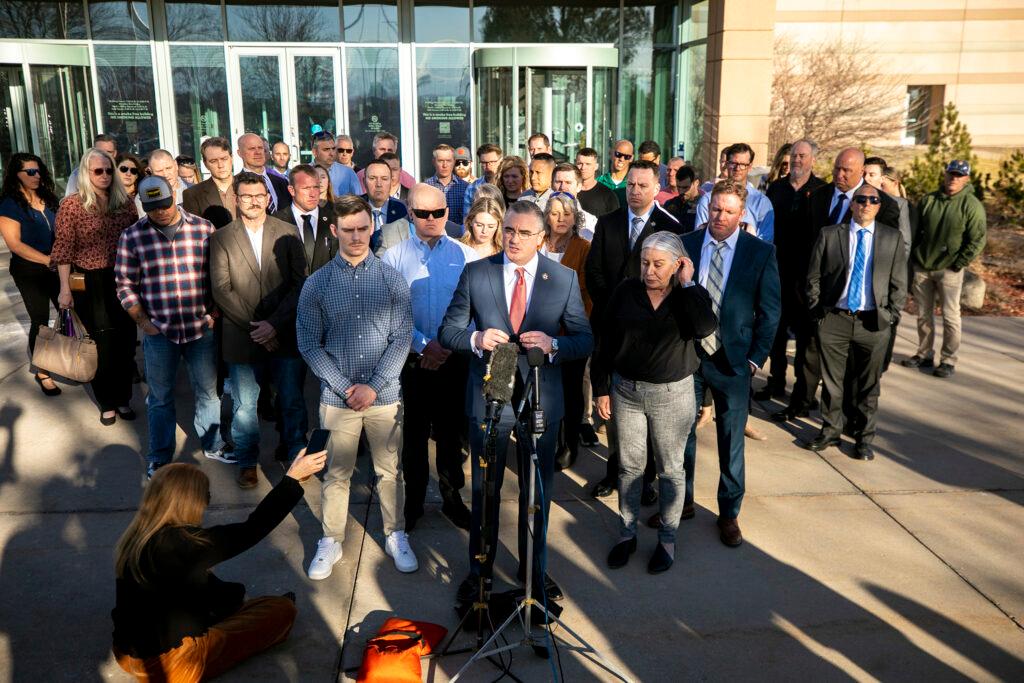
Updated at 5:14 p.m. on Friday, March 1, 2024.
Aurora paramedic Peter Cichuniec was sentenced Friday afternoon to five years in state prison and another year to be served at the same time for authorizing a lethal dose of ketamine for Elijah McClain in 2019. He also faces three years of parole.
Cichuniec had never forcibly administered ketamine before he decided to knowingly give an unarmed 23-year-old Black massage therapist, who had just violently struggled with police and was nearly catatonic, an overdose of the sedative.
In December 2023, an Adams County jury convicted Cichuniec, 51, of criminally negligent homicide and second-degree assault with the unlawful distribution of drugs for his role in McClain’s death. A forensic pathologist for Adams County said that if it wasn’t for that big dose of ketamine for McClain’s 143-pound body weight, he would have lived.
“My son’s murder was 100 percent avoidable,” said McClain’s mother, Sheneen, addressing the judge. “I am here to witness that Peter Cichuniec will receive some form of accountability in the American justice system for his participation in my son’s murder … The truth is he did not even try to save my son’s life when he had so many chances to perform his exceptional skills.”
Sheneen also told the judge that she had always looked up to firefighters – ever since a kitchen fire burned her legs and they helped her, she said.
“I have always looked at firefighters as local heroes until the day they assisted in murdering my son, Elijah McClain,” she said.


In August 2019, officers were responding to a suspicious person call when McClain, a Black unarmed massage therapist, was walking home from a convenience store with a bag of iced teas.
Three Aurora officers forcibly detained him and took him to the ground. They administered two carotid holds, which cut blood flow off to his brain, and then paramedics on the scene gave him the powerful sedative ketamine before he lost his heartbeat in the ambulance. He died a few days later at University of Colorado Hospital.
Five people, the three officers and two paramedics, were charged in his death. One officer, Randy Roedema was convicted and is serving a 14-month jail sentence. Cichuniec and his colleague Jeremy Cooper were also convicted of criminally negligent homicide.
On Friday, Cichuniec entered the packed courtroom in yellow and white striped jail garb. He has been incarcerated since that conviction, just three days before the Christmas holiday because the assault charge carries an in-custody requirement. He has been serving time in the Adams County Jail. His wife, family, and at least three dozen paramedics and other supporters sat behind Cichuniec and his attorneys.
“I wish I could tell Ms. McClain that Elijah would be OK,” Cichuniec tearfully told the judge, speaking into a microphone, clad in handcuffs and ankle cuffs and wearing black reading glasses. “There are many, many tragedies in my career, but there are people I wish I could say they are OK, but I can’t … We are not God. I am not God. And we can’t always have a positive outcome. We can’t save everyone … Elijah will always be on my mind, along with all the others.”

His wife, Katy Cichuniec, described her husband of nearly 34 years as honest, loving, and supportive. She called him “her rock” when she was diagnosed with breast cancer. She has additional treatments this spring and asked the judge for leniency so he could be there to help her.
“He rarely raised his voice,” she told the judge, flanked by their two adult sons, in between sobs. “He was the late-night bottle feeder and diaper changer. He was the field trip dad, the counselor, the soccer field mower. And he did it all happily.”
After the sentence, Katy said that five years was the most lenient sentence he could get, and then she started crying.
“It’s almost better knowing,” she said.
His co-defendant, Jeremy Cooper, was not immediately incarcerated because there is no in-custody requirement with criminally negligent homicide. He will be sentenced in April. He and his family attended Cichuniec’s sentencing on Friday.
Edward Kelly, president of the International Association of Firefighters, spoke outside the courthouse after the sentence was handed down. He called the death of McClain a tragedy.

“But what happened in this courtroom today was also a tragedy,” he said. ”The fact of the matter is firefighter Pete Cichuniec is not a criminal, and he should not be on his way to jail right now.”
The Cichuniec and Cooper convictions are a rare example of paramedics being charged in the death of a patient — there is not a case like this anywhere in the U.S.
Aurora Fire Rescue said the criminal prosecutions had a chilling effect on the inside. Out of 236 firefighters and medics, 25 have submitted paperwork to not be medics anymore on the job since the convictions of their colleagues.
During the December trial, Cichuniec said he knew he was giving McClain too much ketamine at the time but he was worried about “underdosing” him.
Hours of police body-worn camera tape never showed Cichuniec and Cooper, the two ranking medical professionals on the scene, checking McClain’s vital signs or making sure he was OK, even though he was in obvious medical distress.
Judge Warner addressed this on Friday.
“Should there have been a better medical assessment?” he said. “Yes.”
Speaking in his own defense during the trial, Cichuniec told the jury that McClain was exhibiting signs of “excited delirium” which has since been struck from all law enforcement training documents in Colorado and has been called a false diagnosis by medical professionals.
Body camera footage of McClain’s interactions never showed any signs of “superhuman strength” or unnatural combative behavior. But Cichuniec doubled down during the trial.
“In this case with excited delirium, it could kill you. And if we don’t work fast, he could die,” he said to the jury. “And I don’t want to under-medicate someone.”
After McClain’s death, the state legislature greatly restricted the use of ketamine outside of hospital settings and prohibited law enforcement on a scene from influencing EMTs or paramedics from giving ketamine. Hours of body-worn camera footage show officers talking about ketamine and McClain’s behavior.
On Friday, Dr. Eric Hill, the medical director of Aurora Fire Rescue, spoke to the judge before the sentencing taking some responsibility for Cichuniec’s actions that night.
“The fire department-sanctioned training was problematic,” Hill acknowledged.
He said two different trainings were at odds with each other and the communication to all paramedics for ketamine administration was not entirely clear.
“It was confusing,” he said. “And Pete had only one chance to get it right.”
McClain’s mother scoffed at this suggestion to the judge.
“The inhuman training that my son’s murderers are blaming their actions on, there was a lack of humanity in the actions,” Sheneen McClain said. “You are not training people to be robots.”
- Paramedics found guilty of criminally negligent homicide in death of Elijah McClain
- Updates: The trial of the paramedics charged in Elijah McClain’s death
- Ahead of the trial of paramedics charged in death of Elijah McClain, Aurora Fire Rescue practices de-escalation
- Aurora Police officer Nathan Woodyard found not guilty in death of Elijah McClain
- One Aurora officer found guilty by jury on lesser charges in death of Elijah McClain









